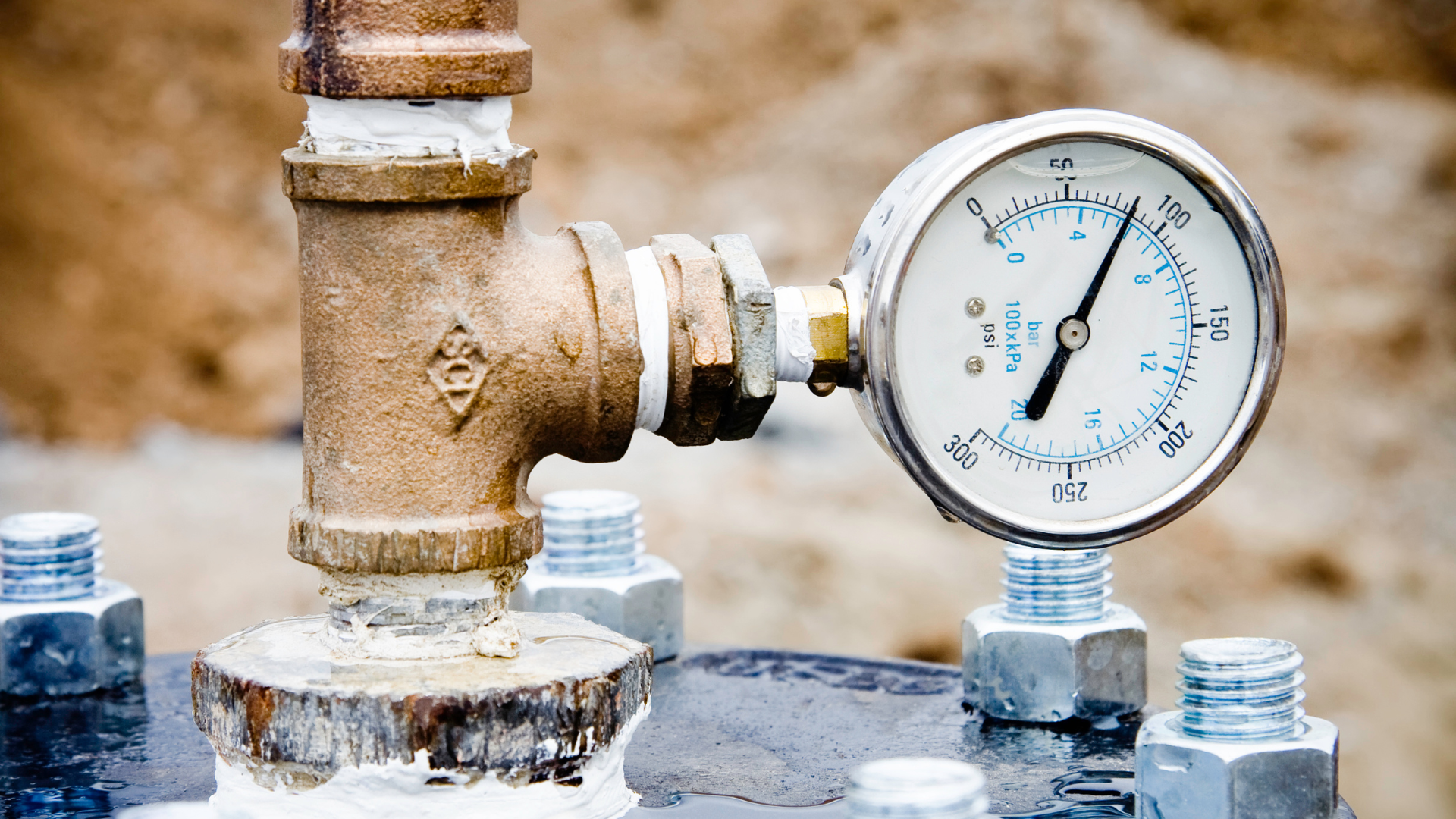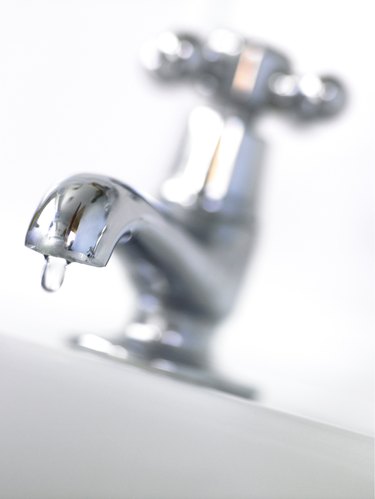This post further down relating to 10 Reasons for Low Water Pressure in Your House is relatively stimulating. You should keep reading.

Low tide pressure in your house can be an irritating trouble, influencing every little thing from showering to cleaning meals. If you're experiencing weak water flow, there are several feasible reasons and services to discover. In this overview, we'll go over usual reasons for low tide pressure and functional steps to deal with the concern properly.
Introduction to Low Tide Stress
Low tide pressure occurs when the circulation of water from your taps, showers, and various other fixtures is weaker than usual. This can make day-to-day jobs a lot more challenging and much less effective. Comprehending the root causes of low water pressure is essential to locating the best remedy.
Typical Root Causes Of Low Water Pressure
Pipe Obstructions
In time, pipelines can become blocked with natural resource, sediment, or particles, limiting the flow of water. This is an usual problem in older homes with galvanized steel pipelines.
Deterioration
Rust within pipelines can bring about leakages and decreased water pressure. Rust buildup can tighten water flow, particularly in maturing plumbing systems.
Faulty Pressure Regulators
Stress regulators are accountable for preserving constant water pressure in your house. If they malfunction, it can cause low tide stress or unequal circulation throughout your house.
Municipal Water Supply Issues
Often, the problem lies outside your home. Community water supply problems, such as main line leaks or maintenance work, can temporarily lower water stress in your area.
Just How to Diagnose Low Water Stress
Checking Taps and Fixtures
Beginning by checking the water pressure at different taps and fixtures throughout your home. If the issue is separated to specific locations, it may show local issues.
Evaluating Pipelines
Inspect noticeable pipes for indicators of leaks, rust, or blockages. Take notice of any unusual sounds, such as banging or rattling pipelines, which could indicate issues within the plumbing system.
Consulting with a Plumber
If you're not able to pinpoint the reason for low tide stress, take into consideration employing an expert plumber to conduct a thorough inspection. They can recognize underlying concerns and recommend proper options.
Do It Yourself Solutions to Take Care Of Low Tide Stress
Cleaning Aerators and Showerheads
Natural resources can collect in aerators and showerheads, lowering water circulation. Get rid of and clean up these elements consistently to enhance water stress.
Flushing Water Heater
Sediment buildup in the hot water heater can limit circulation and reduce efficiency. Flushing the tank occasionally helps get rid of sediment and preserve ideal performance.
Checking Pressure Regulatory Authority
Make sure that the stress regulator is functioning properly. Changing or replacing the regulator can assist bring back appropriate water pressure throughout your home.
Cleaning Clogs in Water Lines
For small blockages, attempt using a plumbing serpent or chemical drain cleaner to clear blockages in pipelines. Beware when using chemicals and adhere to safety guidelines.
When to Call a Specialist Plumber
If do it yourself efforts stop working to settle the concern or if you presume considerable plumbing issues, it's finest to look for support from an accredited plumber. They have the competence and tools to resolve complicated issues safely and successfully.
Safety Nets to Preserve Water Pressure
Normal Upkeep
Schedule routine maintenance for your plumbing system to prevent concerns such as rust, leaks, and obstructions. Attending to small issues early can help prevent more significant repair work later.
Installing a Pressure Booster
Consider installing a stress booster pump to enhance water stress in locations with continually reduced flow. This can be specifically beneficial for multi-story homes or properties with high-demand fixtures.
Tracking Water Usage
Bear in mind water usage practices and prevent overtaxing the plumbing system. Straightforward changes, such as shocking showers and laundry tons, can assist maintain ample water stress.
Conclusion
Managing low tide pressure can be discouraging, however determining the underlying causes and executing proper options can bring back optimal flow throughout your home. Whether it's cleaning up aerators, inspecting pipelines, or speaking with a plumber, taking aggressive steps can ensure a consistent supply of water for your day-to-day needs.
HOW TO FIX LOW WATER PRESSURE IN YOUR HOUSE (EXPERT GUIDE)
The morning shower lacking any real pressure? Bathtub taking hours to fill? Or maybe you’re dissatisfied with the inadequate performance from your combi boiler?
Then you, like millions of others across the UK, might be experiencing low water pressure.
Fortunately, the good news is that you don’t have to continue living this way. The cause of low water pressure in the home is often quite simple, and you may not even require a plumber to fix the problem.
What causes low water pressure in the house?
If you are experiencing issues with water pressure throughout your home, then you may have one of the problems outlined below.
Most of these problems can be fixed quite easily, but for others, you may need to contact a plumber.
Obstructed Shutoff Valve
If you’ve just bought a new home or recently had building work conducted on your property, there is a chance that your water valves were not fully opened.
If the water valve is partially closed, then you may be restricting the amount of water entering your home. To fix this, simply ensure the valve is fully open.
If the valve appears fully open but you are still encountering reduced water pressure, then the valve may be broken. If this is the case, do not under any circumstances try to fix it without proper training.
Often found under your kitchen sink, a water valve will usually look like a bright yellow handle.
Again, if you believe the water valve is broken, contact a plumber immediately.
Leaks in Your Water Pipes
Leaks are the worst-case scenario when it comes to low water pressure.
If the water pipes are damaged, then this will cause low water pressure, as not all the water will make it to your taps.
After you’ve checked to see if the valve is fully open, you can conduct a leak check of your home. Now, this may seem scary, but it is actually quite simple.
Clogged Water Pipes
Clogged water pipes are one of the most common causes of low water pressure.
These clogs usually build-up when your home is supplied water via iron pipes. Iron is particularly vulnerable to rusting which can then break off and cause an obstruction within your system. You also face the problem of things like dirt, gravel or sand entering creating mineral deposits which further block water flowing from the mains water supply.
Unfortunately, if you suspect that clogged pipes may be restricting your water supply, then you will need to contact a plumber.
In this situation, you will either need to have your pipes removed and cleaned or in more severe cases, you could require a new set of water pipes.
Designer Taps
Designer taps look fantastic, but are they built to be efficient in your plumbing system? Modern taps are built for modern homes and they often have lower flow rates that are specifically designed for use within high-pressure systems.
Install a Water Pressure Booster Pump
If the issue is simply that the mains water pressure supply is too low, the simplest fix is to invest in a booster pump. Found in homes of all shapes and sizes, booster pumps are a relatively cheap option to add extra pressure to your home.
Designed to increase water pressure by passing water into the pump from your mains supply and then ejecting it into your home water system at a higher pressure, a booster pump is a truly simple and effective solution to increasing water pressure.
https://www.anchorpumps.com/blog/the-plumbers-guide-to-fixing-low-water-pressure/

HOW TO FIX LOW WATER PRESSURE IN YOUR HOUSE (EXPERT GUIDE)
The morning shower lacking any real pressure? Bathtub taking hours to fill? Or maybe you’re dissatisfied with the inadequate performance from your combi boiler?
Then you, like millions of others across the UK, might be experiencing low water pressure.
Fortunately, the good news is that you don’t have to continue living this way. The cause of low water pressure in the home is often quite simple, and you may not even require a plumber to fix the problem.
What causes low water pressure in the house?
If you are experiencing issues with water pressure throughout your home, then you may have one of the problems outlined below.
Most of these problems can be fixed quite easily, but for others, you may need to contact a plumber.
Obstructed Shutoff Valve
If you’ve just bought a new home or recently had building work conducted on your property, there is a chance that your water valves were not fully opened.
If the water valve is partially closed, then you may be restricting the amount of water entering your home. To fix this, simply ensure the valve is fully open.
If the valve appears fully open but you are still encountering reduced water pressure, then the valve may be broken. If this is the case, do not under any circumstances try to fix it without proper training.
Often found under your kitchen sink, a water valve will usually look like a bright yellow handle.
Again, if you believe the water valve is broken, contact a plumber immediately.
Leaks in Your Water Pipes
Leaks are the worst-case scenario when it comes to low water pressure.
If the water pipes are damaged, then this will cause low water pressure, as not all the water will make it to your taps.
After you’ve checked to see if the valve is fully open, you can conduct a leak check of your home. Now, this may seem scary, but it is actually quite simple.
Clogged Water Pipes
Clogged water pipes are one of the most common causes of low water pressure.
These clogs usually build-up when your home is supplied water via iron pipes. Iron is particularly vulnerable to rusting which can then break off and cause an obstruction within your system. You also face the problem of things like dirt, gravel or sand entering creating mineral deposits which further block water flowing from the mains water supply.
Unfortunately, if you suspect that clogged pipes may be restricting your water supply, then you will need to contact a plumber.
In this situation, you will either need to have your pipes removed and cleaned or in more severe cases, you could require a new set of water pipes.
Designer Taps
Designer taps look fantastic, but are they built to be efficient in your plumbing system? Modern taps are built for modern homes and they often have lower flow rates that are specifically designed for use within high-pressure systems.
Install a Water Pressure Booster Pump
If the issue is simply that the mains water pressure supply is too low, the simplest fix is to invest in a booster pump. Found in homes of all shapes and sizes, booster pumps are a relatively cheap option to add extra pressure to your home.
Designed to increase water pressure by passing water into the pump from your mains supply and then ejecting it into your home water system at a higher pressure, a booster pump is a truly simple and effective solution to increasing water pressure.
https://www.anchorpumps.com/blog/the-plumbers-guide-to-fixing-low-water-pressure/
I am just very taken with 10 Reasons for Low Water Pressure in Your House and I'm hoping you enjoyed reading my entry. Loved our entry? Please quickly share it. Help somebody else locate it. I enjoy reading our article about 9 Reasons for Low Water Pressure in Your House.
Call